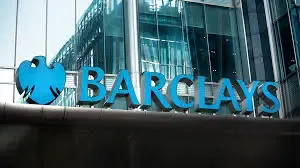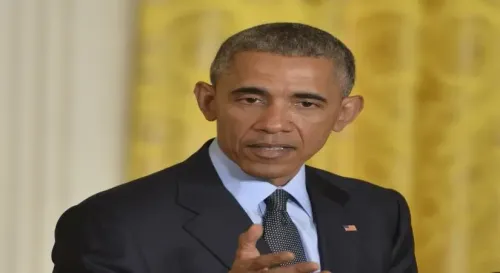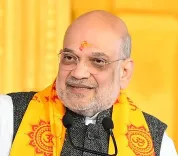Have Global Investment Banks Upped S. Korea's 2025 Growth Forecast to 1%?

Synopsis
Key Takeaways
- Global investment banks raised South Korea's 2025 growth forecast to 1%.
- The increase is attributed to a recent tariff agreement with the U.S.
- Goldman Sachs and UBS lead with the highest growth predictions.
- South Korea's economic outlook is now more favorable compared to other nations.
- The Bank of Korea plans to release an updated forecast later this month.
Seoul, Aug 6 (NationPress) Prominent global investment banks (IBs) have revised their projections for South Korea's economic growth in 2025, attributing the change to a recent tariff agreement with the United States, as per a report released on Wednesday.
As of late July, eight leading global IBs, including Barclays, BoA-Merrill Lynch, and Citi, estimated that the fourth-largest economy in Asia would see a growth of 1 percent this year, marking an increase of 0.1 percentage points from their median forecast from the previous month, according to the Korea Center for International Finance.
This adjustment signifies the second consecutive month of upward revisions by these foreign institutions, as reported by Yonhap news agency.
Among these banks, Goldman Sachs and UBS provided the most optimistic growth predictions at 1.2 percent, followed closely by Barclays at 1.1 percent and Nomura at 1 percent.
Goldman Sachs pointed out that the agreement between Seoul and Washington concerning U.S. President Donald Trump's administration's stringent tariff policies has alleviated uncertainties, positioning South Korea favorably compared to other nations.
Recently, South Korea and the U.S. announced a tariff arrangement where the U.S. will impose a 15 percent tariff on South Korean imports, down from an initially proposed 25 percent, in return for South Korea's commitment to invest $350 billion in the U.S.
In May, the Bank of Korea (BOK) significantly reduced its 2025 economic growth forecast to 0.8 percent, due to uncertainties related to the U.S. tariff policies and sluggish domestic demand. The central bank is expected to release an updated forecast later this month.
On Wednesday, South Korean stocks ended nearly flat, with increases in tourism and retail shares balancing losses in semiconductors and pharmaceuticals. The local currency weakened against the U.S. dollar.
The benchmark Korea Composite Stock Price Index (KOSPI) inched up by 0.14 points, or 0 percent, closing at 3,198.14.
Trade volume was somewhat low at 319.8 million shares, valued at 10.7 trillion won (approximately $7.7 billion), with the number of winners surpassing losers at 644 to 236.










